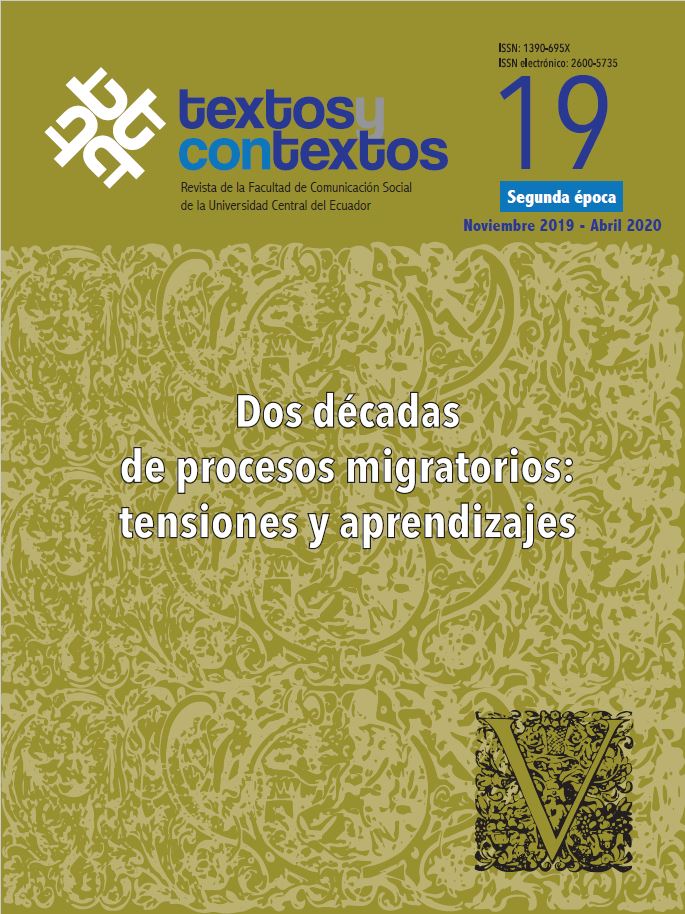The unnameable: queer exile and childhood in the literary work of Eugenia Viteri
Main Article Content
Abstract
The word of Eugenia Viteri is part of the literary field of the 1950s. In her work the meaning is noted for claiming the abject, the queer (referring to the English adjective that translates as "weird", "strange"), what that society rejects and represses. In this space of exclusion, the condition of the exiled is configured. In the first part, the subject of the queer in Ecuadorian literature is briefly introduced, an issue which has been present for at least a century or so, which indicates the place that It has placed us as "such a conservative society." Then the exiled figure is analyzed in relation to female homosexuality in A ninety miles, only (1969), where the idea of the failure of the utopia of the “New World” that characterized the militant youth of the 1960s is emphasized. Finally, the queer childhood figurations are approached in the story Florencia (1977), where the parallelism between the figure of the exiled and that of the homosexual woman can be seen.
Downloads
Metrics
Article Details
References
Butler, Judith. Cuerpos que importan, Barcelona: Paidós, 2002.
Eribon, Didier. Una moral de lo minoritario, Barcelona: Anagrama, 2004.
Fraser, Fraser. Fortunas del feminismo, Quito: Instituto de Altos estudios nacionales, 2015.
Kristeva, Julia. Extranjeros para nosotros mismos, Barcelona: Plaza y Janes, 1991.
Link, Daniel. “La infancia como falta”, Journee d´estudes “Rècit d´enfance, rècit des origines” organizado por la Université Paris Ouest Nanterre La Défense, 2013.
Premat, Julio. Érase esta vez. Relatos de comienzos, Buenos Aires: Edutref, 2016.
Viteri, Eugenia. A noventa millas solamente, Quito, Editorial Casa de la Cultura Ecuatoriana., 1969. _____________. “Florencia”, Los Zapatos y los sueños, Quito, Editorial Casa de la Cultura Ecuatoriana, 1977.




